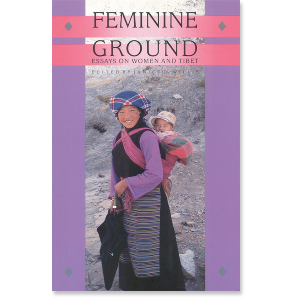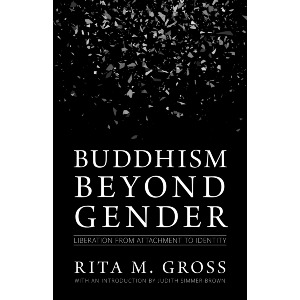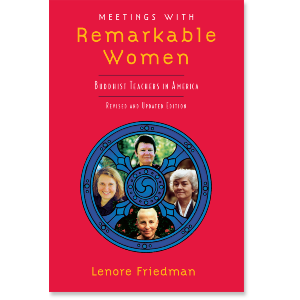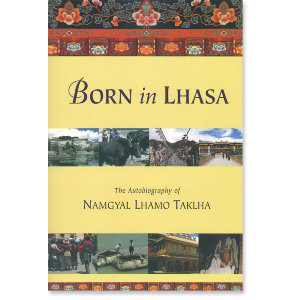| The following article is from the Winter, 1986 issue of the Snow Lion Newsletter and is for historical reference only. You can see this in context of the original newsletter here. |
Tibetan Refugee Women
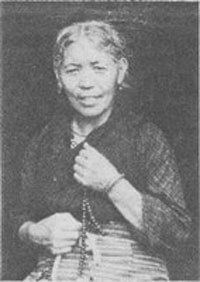
"We Tibetan ladies feel that we should make ourselves known to the other ladies of the world," says Rinchen Khando Choegyal, President of the Tibetan Women's Association (TWA). "We should come to know each other, share each other's joys and sorrows and learn from each other. If all the ladies of the world got together, if we put all our problems together, I'm sure they wouldn't differ much."
join hands with the women of the world in the promotion of human rights, peace and justice
One of TWA's objectives is to join hands with the women of the world in the promotion of human rights, peace and justice so that the world will be a better place in which to live.
Tibetan women who do not belong to the lay community face different problems. "Tilokpur Nunnery,"Karma Drubgyu Thargay Ling Mahayana Buddhist Nunnery (KDTL), in Tilokpur and Gedun Choeling Nunnery in Dharamsala are two of the few nunneries among the 300 Tibetan Buddhist monastic institutions in India. Of the 500 to 600 Tibetan Buddhist nuns in India, under 100 are able to live in nunneries.
Once admitted, nuns face poor sanitation and unhygienic facilities (as do monks and most people in India), a nutritionally inadequate diet and cramped living quarters. For example, at Gedun Chowling two and sometimes three nuns share an 8' x 10' cell. In a letter dated September 3, 1986, Rinchen Khando states that many new nuns have arrived in Dharamsala from Tibet, making overcrowding worse than ever.
We Tibetan ladies feel that we should make ourselves known to the other ladies of the world
Nuns have fewer educational opportunities than do monks, whose plight is a little better publicized. The nuns in Dharamsala get all the teachings offered by His Holiness the Dalai Lama and the other lamas who live in the area. It's more difficult for the nuns at the remote KDTL, who need an ongoing study program.
The Kagyu nuns at KDTL and their Gelug sisters at Gedun Choeling eat a spartan diet. The nuns at Gedun Choeling are able to eat bread and tea for breakfast and rice and dahl–and occasionally vegetables–for lunch due to the efforts of a sponsor who has been able to generate funds through associates and friends in the West. If the Gedun Choeling nuns don't have any personal money, they cannot afford to eat dinner.
Occasionally a nun will treat herself to some nutritious milk, only to find that the merchant has watered it down to make it go further. Rinchen Khando has suggested that the nunnery purchase a cow. The nuns at KDTL as well as those at Gedun Choeling are extremely thin and frequently ill, yet they consider themselves to be the most fortunate among humans.
Despite many hardships. . . .they consider themselves to be the most fortunate among humans.
Gedun Choeling evolved from the hearts of two nuns from Tibet who had belonged to the same nunnery, Nechung Ri, near Lhasa. When the Chinese Communists invaded Tibet, some of the nuns at Nechung Ri, Tibet's largest nunnery, were imprisoned, tortured and killed while others–the more fortunate ones–were forced into hard labor and the renunciation of their vows. Others escaped south.
At the moment, the Communist Chinese government in Tibet allows Tibetans limited access to India. Young nuns are leaving their loved ones and familiar surroundings to undertake the arduous journey to India. They dream of practice and of study.
For many, the dream is elusive. Some nuns have had to disrobe and look for work in the lay community in order to support themselves. Others, more fortunate, have found housing outside the nunneries.
The dream of practice and of study. . . .empowers many nuns to undertake the arduous journey to India.
Tibetan nuns outside India fare little better. The nuns at Swayambhu in Nepal are in extremely difficult circumstances, states Terry Sullivan, who has recently traveled extensively in Asia and is working to generate support for nuns of all lineages.
The nuns need financial help on all levels, from individual sponsorship to building funds. Please remember that a little goes a long way in India, Nepal and Sikkim. Whatever you can give will be very greatly appreciated.
Help Tibetan Nuns
If you would like further information on helping the nuns, or if you would like to reach out to the Tibetan women - and therefore all Tibetans - please feel free to connect. Click here to update your contact information.
Also, you can help Tibetan nuns through Donations and Sponsorship. If you are not able to contribute financially, moral support is most welcome.



